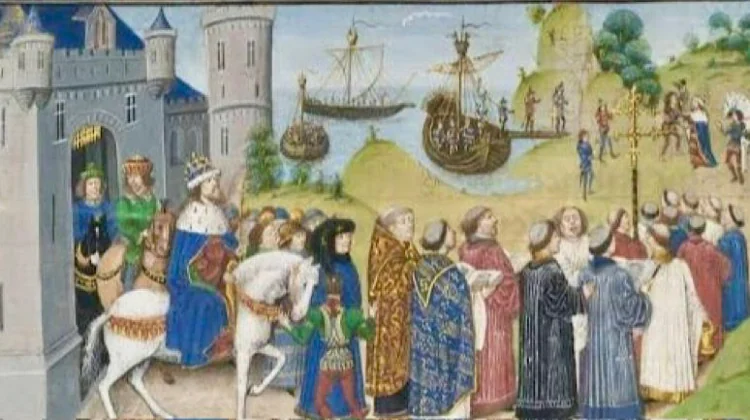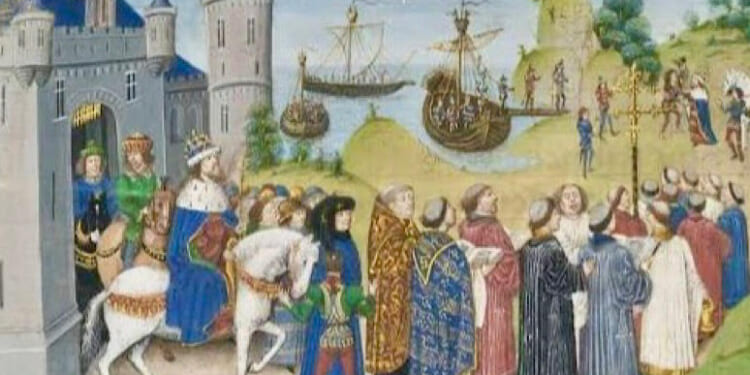
[Order Michael Finch’s new book, A Time to Stand: HERE. Prof. Jason Hill calls it “an aesthetic and political tour de force.”]
The Romans, commonly known today as the Eastern Romans or Byzantines, but known to themselves only as Romans, stood against Islam and resisted its expansion for eight hundred years, from the time of Heraclius in the seventh century until the warriors of jihad succeeded in their eight-century effort and finally put an end to the Roman Empire. In these dark days, the West would do well to study the Romans’ example, but one thing is certain: no one will.
Some today would no doubt say that the fact that the Romans resisted the warriors of jihad for so long is a strike against the defenders, who should have realized how much Muslims would enrich and diversify their cities and their population. In the twenty-first century West, we are way beyond that “us vs. them” mentality; we are all “us” now, and if the emperors in Constantinople had realized that and welcomed the Arabs and then the Turks, a magnificent multicultural civilization would have grown up on both banks of the Bosporus and spread to both Asia and Europe.
This is a pleasing fantasy, but those same warriors of jihad would never have allowed it to become a reality. They were not coming then, as they are now, as putative refugees in need of a helping hand from the wealthy West. They were coming as warriors and would-be conquerors; coexistence was not in their mind any more than it was in the mind of the Romans. They came to rule, intending to subjugate the Christians (as well as the Jews and any others they encountered) and to establish the hegemony of Islam. If they had succeeded in taking Constantinople in the first siege in 675, or in the second siege in 717, or at any point after that before the time of the Crusades, they would almost certainly have destroyed the empire completely and then had a free hand to advance into Eastern Europe, where during the seventh and eighth centuries there was no force remotely powerful enough to stop their advance.
The same warriors of Islam were, meanwhile, advancing confidently in Western Europe, conquering Visigothic Spain in 711 and advancing into France, where they were stopped at Tours in 732. History frequently hangs by a thread. If the jihadis had conquered Constantinople in 675 and defeated Charles Martel at Tours in 732, the entirety of Europe could swiftly have been conquered for Islam. The English historian Edward Gibbon describes what might have happened if Charles Martel had not prevailed: “A victorious line of march had been prolonged above a thousand miles from the rock of Gibraltar to the banks of the Loire; the repetition of an equal space would have carried the Saracens to the confines of Poland and the Highlands of Scotland; the Rhine is not more impassable than the Nile or Euphrates, and the Arabian fleet might have sailed without a naval combat into the mouth of the Thames. Perhaps the interpretation of the Koran would now be taught in the schools of Oxford, and her pulpits might demonstrate to a circumcised people the sanctity and truth of the revelation of Mahomet.”
Indeed. Europe in general is in no mood to acknowledge it, and is in fact busy undoing all the work that was done, but had the Romans not been a bulwark between Islam and Eastern Europe for so many centuries, there might never have been a Europe as we know it, or, therefore, a Western world, or a United States of America. If the West had not come to regard the Romans as an alien population to be subdued rather than as a brother Christian nation, the civilizational threat of Islam might have been rolled back much farther than it ever was.
What might have been will be the subject of endless speculation. What actually did happen was that the Roman Empire prevented the warriors of jihad from overrunning Europe for seven hundred years, the period when those jihadis were stronger than they have ever been since. The Romans—though derided as schismatics, pretenders, and effeminate weaklings—were responsible for nothing less than the salvation of European civilization.
While that bald fact can be stated in a sentence, its implications are staggering: for art, for music (which Islam officially forbids except for a cappella songs celebrating jihad, although this prohibition is often ignored), for literature, for science and scientific innovation, for philosophy, and so much more.
















